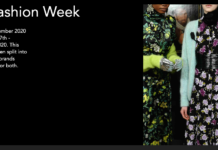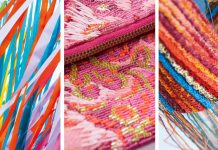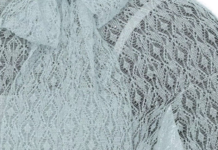London
The house of Tengri creates exclusive, understated products such as sweaters, accessories, coats and jackets and throws and blankets from natural materials sourced from remote corners of the world. All of the company’s products are designed and made with the highest level of craftsmanship, produced for “discerning and conscientious global citizens”.
Tengri founder Nancy Johnston is a LA born Asian-American living in London with a penchant for travel and adventure. The idea behind Tengri was conceived when she was travelling and staying with herder families in Mongolia. “It was fascinating to see the delicate and interwoven relationship between people, animals and the land, and I developed a deeper understanding and respect for the bond between the herder families’ livelihoods, their yaks, and the Mongolian landscape,” Nancy explains.
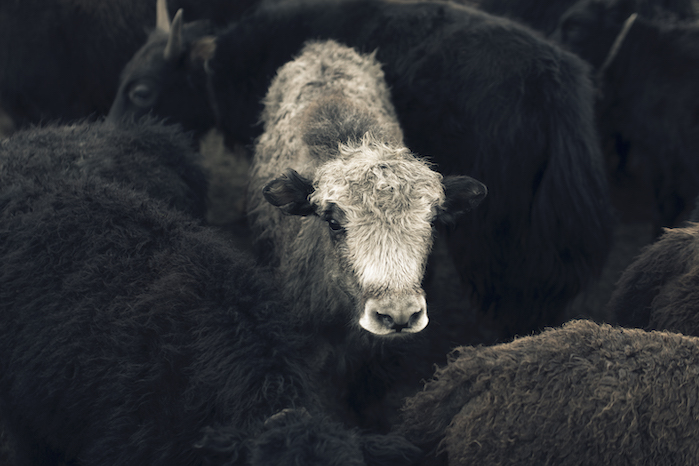
“I also discovered how the Khangai yak – an indigenous wild species found in the Khangai mountains of western Mongolia – could help preserve this nomadic way of life. These native animals support biodiversity and help to prevent land desertification by allowing plant species and wildlife to regenerate and thrive. Khangai yak fibres are as soft as cashmere, warmer than merino wool, and hypoallergenic.”
In this interview Nancy Johnston talks to us about her experiences since crowdfunding the launch of the house of Tengri in 2014.
Could you please tell our readers the brief story of the house of Tengri and why you are using Khangai yak fibres for your products?
Nancy Johnston (NJ): The birth of Tengri came from a very personal journey to me. In 2013 I took my first visit to Mongolia, a region that had been in my sights for some 20 years – some might say a lifelong dream.
With no agenda other than to explore, my journey took me to live for a period of time with a yak herder family in the remote Khangai region where I saw first-hand the challenges they faced. The family were desperately trying to save money for their young daughter’s education, but many of their animals had died due to a combination of land desertification and a prolonged winter.
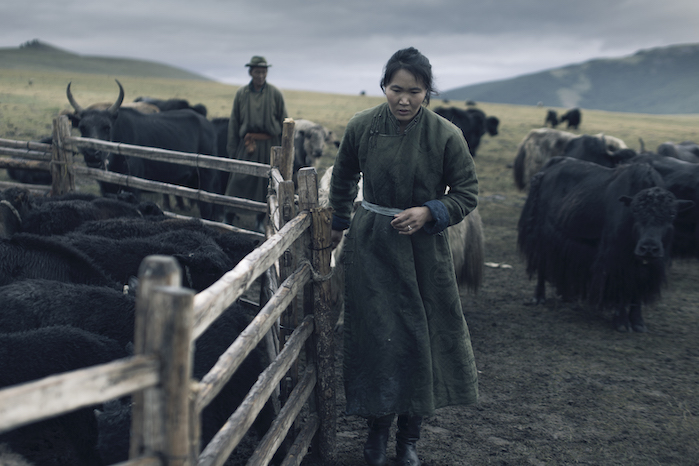
I discovered that the nomadic way of life and future of wild animals are threatened by rapid industrialisation and desertification of the land, largely due to the intensive grazing of cashmere goats, which significantly contributes to climate change. Nomadic herder families in Mongolia supply the world’s top fashion brands with luxury fibres contributing to the global luxury apparel market which is expected to be worth US$60.7 billion by 2024. Many nomadic herder families live on subsistence wages of around £1 per day.
The herders travelled with their herds of yak for sustenance – yak milk, but I saw an opportunity to further strengthen the relationship the communities have with these magnificent creatures, to strengthen their self-reliance.
I learnt that the Khangai yak has fibres with unique natural properties, due to the region’s unique terrain and micro-climate. They are naturally exquisitely soft, hypoallergenic, water-resistant, warmer than merino wool and thermal-regulating.
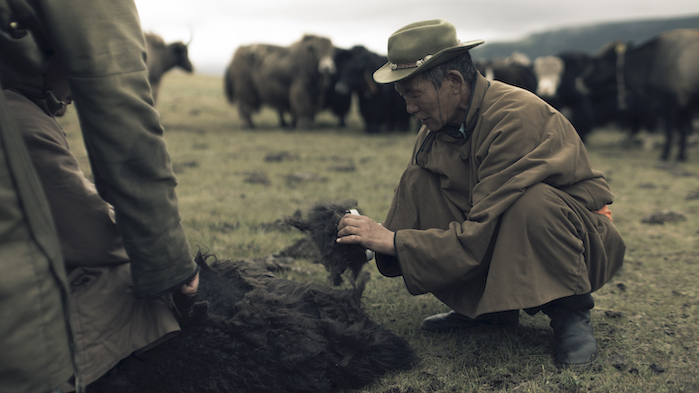
My background as a social worker kicked in and I saw an opportunity for both the herders and the global fashion industry. I returned to the UK committing to the purchase of one tonne of fibres, and back in London set the wheels in motion. Through serendipitous encounters and working my contacts hard we grew a collaborative team of talented, innovative designers and heritage craftsmen. We were able to refine the yarns here in the UK, the first technology specialist to do so at that time, championing the sustainable manufacture of ‘noble yarns’ – named for their unique qualities – protecting and preserving some of the world’s most remote indigenous communities, with an emphasis on conservation and environmental progression.
Tengri has grown and established a fair-share business model, today working directly with 4,500 nomadic herder families in the Khangai region of Mongolia. We are ensuring a unique fair-share income whilst establishing herders’ land rights and offering buyers a 100% transparent supply chain.
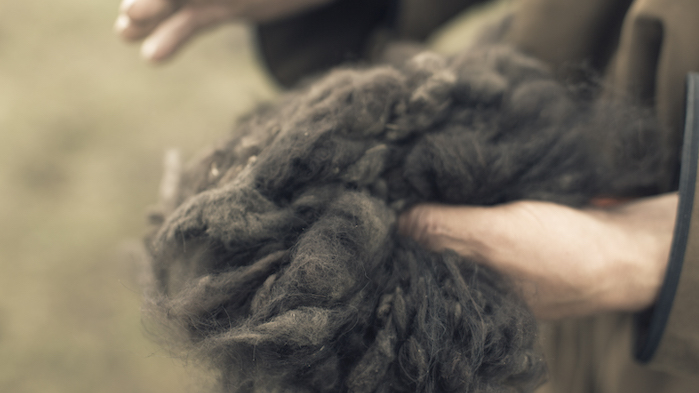
Tengri now offers our clients a lifestyle that encompasses clothing and interiors. Our rare fabrics can now be found on Savile Row. We launched an exclusive and limited collection of fabrics with Huntsman and are now working with a growing number of tailors with exclusive collections for coating and jacketing. Our fibres can be experienced in The Savoy Hotel, where in collaboration with Savoir Beds we created of one of the world’s most luxurious beds in the Royal Suite, and we collaborated with shoe maker Joseph Cheaney, to launch a performance brogue featuring the world’s first insole made with Khangai Yak fibres.
What role do you see yourself and your team playing in the movement of slow fashion?
NJ: The Tengri business model and cycle of Tengri products is reliant on nature, we are slow fashion in its purest form. Our fibres are combed only once a year and from combing to cloth, the development process for our limited-edition fabrics can take up two years, combining creative artistry, science, the purest raw fibres and finest yarn construction. The core of our manifesto is to encourage a world where land, animals and people are cherished, nurtured and respected. We want to help build a society where sustainable business is the norm, not an alternative, because this not only has an environmental impact, it also helps to preserve heritage skills.
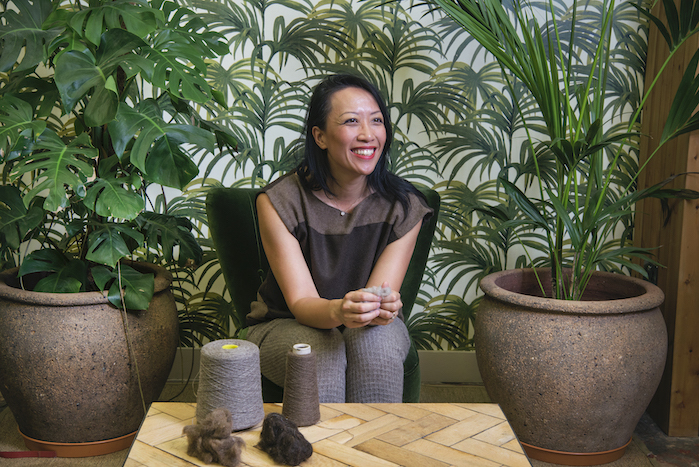
Tengri’s Khangai Noble Yarns are woven at a heritage mill in Yorkshire, with traditional skills in textile manufacturing dating back to 1777. A process combined with innovative technology ensures the highest quality of luxurious cloth. The fibres are processed in the soft water of the Yorkshire Pennines, a natural ingredient and unique aspect of the Huddersfield textile weaving industry, aiding the production of exquisite cloth. For the Khangai Limited Edition Fabrics this results in a distinguished and luxurious handle. To finish, the cloths are brushed with the fibres of wild harvested teasel plants and delicately steamed to refine texture and drape.
What is Tengri’s supply chain model and what steps does it involve?
NJ: I built the supply chain for Tengri by working direct with nomadic herders. I personally travel to Mongolia, Scotland and Yorkshire and know everyone involved in making Tengri products.
Buying fibres direct from nomadic families means traceability is built into the start of the supply chain. Most companies buy finished parts, such as yarns and fabrics, but this makes supply chain transparency impossible. At Tengri we work directly with the herder co-operatives and there is no middleman.
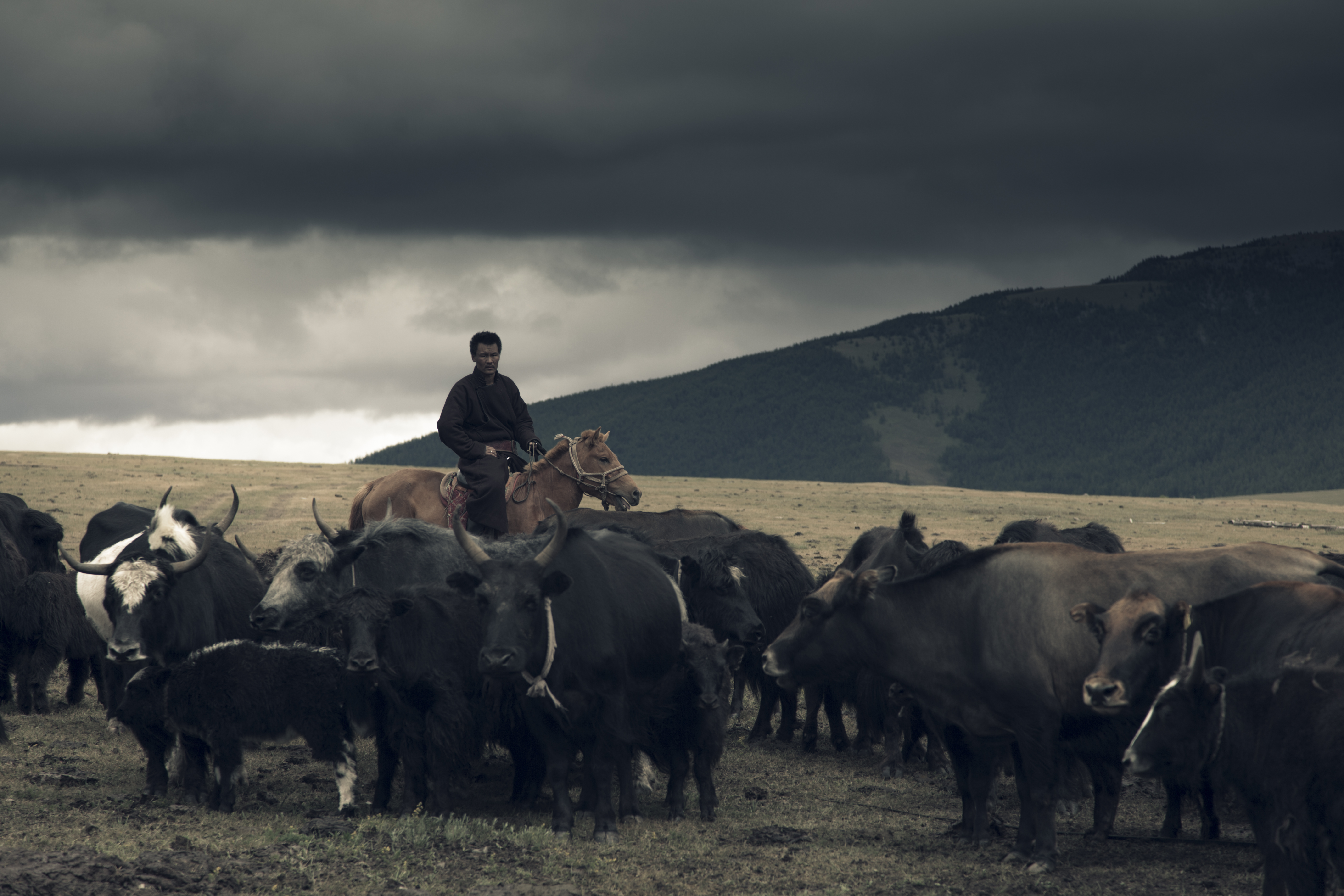
Our fibres are hand-combed from the underbelly of each baby yak once a year, in the spring when the yaks shed their winter coats. On average only 100 grammes of fibres are available from each yak. I personally work with the herder communities and manage the first stage of processing before the fibres are exported direct to us in the UK. The second stage involves heritage craftsmen and manufacturers in England, where skills are passed from one generation to the next to create yarns and fabrics.
You’ve come a long way from launching with the help of crowdfunding supporters in 2014 to collaborating with luxury fashion brands today. Have you seen any change in the market in those years in terms of demand or standards?
NJ: Quite simply, yes. Armed with more knowledge consumers are demanding that brands be more accountable and responsible for their business practices. The industry is stepping up and changing its practices to treat people, animals and the environment better, but I still see that more needs to be done to create the fashion revolution we need to see and move beyond greenwashing and inauthentic marketing spin.
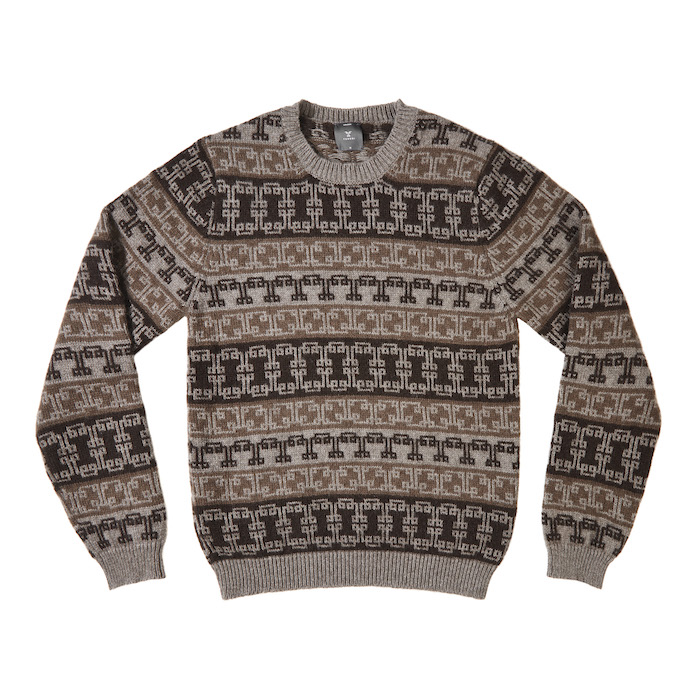
Last year, Tengri announced the launch of Khangai Experience, an immersive journey to western Mongolia. What was the original idea behind launching the project?
NJ: We launched Tengri travel to share our story. We’ve nurtured very close relationships with many of our clients and they are passionate about the brand and experiencing first-hand the impact their buying choice has socially and environmentally. The aim is to invite our guests to be an integral part of our pioneering approach to sustainability, a journey to support conservation and to inspire curiosity and dialogue, redefining life’s ‘luxury’ immersions, authentically connecting people, land and animals.
What has it been like so far? Are you planning to continue it?
NJ: These experiences are an extension of the Tengri lifestyle and we offer them to our clients, and partners on a bespoke and tailored basis.
What does the itinerary include and how does it help connect with the local herders, their lives and the story behind Khangai yak fibres?
NJ: Working directly with the herder communities, sourcing fibres for Tengri cloth, garments and interiors, has given me immersive knowledge of the Khangai region and I’m fortunate to have met and brought together an inspiring team, from global pioneers to local gurus, expedition chefs, wildlife trackers and storytellers. Our exclusively curated itineraries explore the Khangai Mountains, a remote region of Central Mongolia 500 kilometres west of the capital of Ulaanbaatar and home to the ancient Khangai Yak. We curate ‘wild’ experiences dictated by the natural elements of the Khangai Mountains, and itineraries incorporate awe-inspiring encounters with contrasting landscapes, wildlife, people and rugged nature, adventures on foot and hoof, and exploration of the region’s most remote corners. We meet and stay with the nomadic herders who govern the majestic lands of the Khangai Mountains and the endemic Khangai Yak, experience local festivals, traditions and once in a lifetime interactions with the area’s incredible wildlife. Our guests have behind-the-scenes access to the Tengri combing season, experiencing first-hand the gathering of Tengri’s rare fibres of the semi-wild Khangai yak, where the story begins.
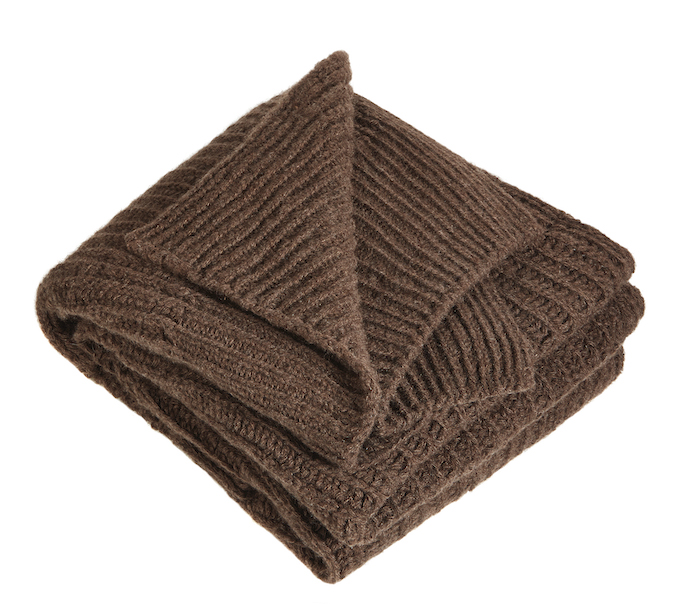
What are the things that still fascinate or captivate you every time you go back to Mongolia?
NJ: The vast landscapes, the nomadic herders’ way of life, the strength and self-reliance of the Mongolian people, young and old, living off the land and animals in such a remote and isolated place.
Would you recommend people to explore that region more?
NJ: I would always encourage people to travel, lightly and sensitively, to explore the remote regions of our world, to educate themselves and to understand the source of consumer resources and how these relationships impact the environment and indigenous communities.
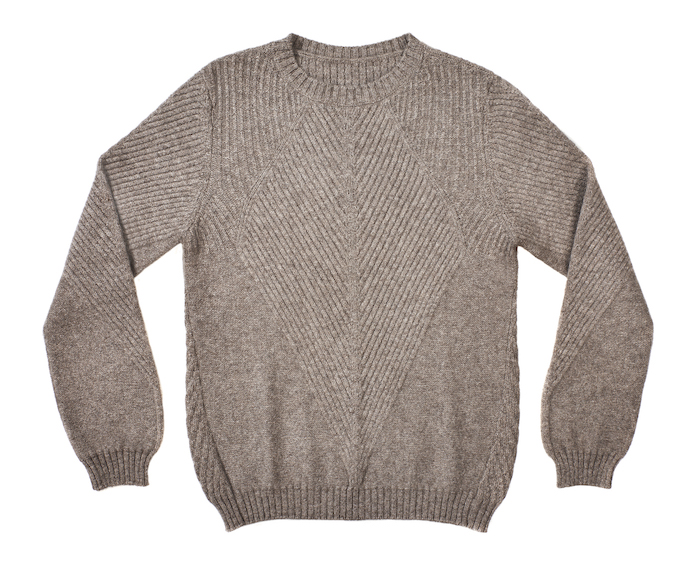
Are there any recent or anticipated developments that you could share with us?
NJ: Our current focus is on the production of the Khangai Limited Edition Fabrics. We have just announced four reams of natural shades including; cocoa, tan and the rarest, most valuable, silver and platinum. This series is processed with eco-friendly dyes including; plum, pine, navy and black. While each batch of fibres is unique no two bolts of fabric will ever be identical ensuring a truly exclusive currency, and with only 60 metres of cloth available of each colour a prestige option for tailoring.
Will we see the second Tengri Innovation Award, which was launched in 2018?
NJ: We have just announced the winners of our second innovation awards and look forward to welcoming winner and designer Sophia Høeg Jensen to the Tengri team on her one-year mentorship with us. We were delighted to see truly exceptional talent and inspired creative thinking come through in our second year of the awards.

Subscribe To Our Newsletter
Join our mailing list to receive the latest news and updates from our team.









